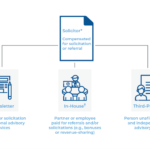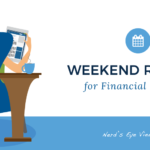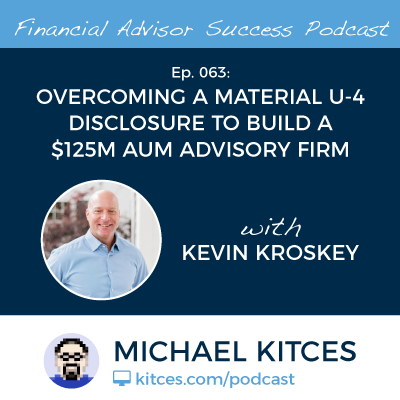
Enjoy the current installment of "weekend reading for financial planners" – this week's edition kicks off with the news that after months of delays, the SECURE Act is finally being passed as an extension of a year-end Congressional spending bill, opening up the potential for Multi-Employer Plan (MEP) 401(k) offerings and more annuities in defined contribution plans... and notably for most advisors, severely curtailing the use of the popular "stretch IRA" strategy to generally no more than 10 years (instead of the full life expectancy of a much-younger beneficiary).
Also in the news this week is the release of the results of the CFP Board's independent task force on enforcement that found "significant failures" in its enforcement processes that must be reformed in the future, and the news that the SEC is looking to expand the Accredited Investor rules beyond the current income and asset test (including, notably, a broad-based permission that would allow all financial advisors themselves with a Series 7 or Series 65 to participate as an Accredited Investor).
From there, we have several technology-related articles, including a look at how the growth of advisor technology for the past decade is reaching the point where now the primary challenge is that advisors have 'too many' choices (and not enough time to wade through options, evaluate how they'll integrate, and do due diligence on vendors), a review of the recent InVest West FinTech conference that is taking an increasing focus on not just UX (user experience) and CX (client experience) but also AX (advisor experience), and a review by Bob Veres of a new wave of "financial planning software" companies that are not producing comprehensive planning software but instead increasingly more specialized 'niche' solutions around everything from tax return reviews and tax planning to Social Security timing, Medicare, and other elder care planning issues.
We also have a few articles on marketing, from tips on how to diligently follow up with a prospect after an initial meeting (without being too pushy), to a reminder that in the end clients don't want to hear your story (as the advisor) but want to tell their story (as we all like talking about ourselves!), and some suggestions on how to handle that moment in a prospect conversation where they say "I'm sorry, I already have an advisor".
We wrap up with three interesting articles, all around the theme of gift-giving ('tis the holiday season!): the first looks at how from an economic perspective, gift-giving is remarkably inefficient (as people try to 'guess' what non-financial gift will provide the appropriate amount of satisfaction and relationship-building with the recipient, with one study estimating $13B per year of 'economic waste'); the second looks at the rise of experiential gifts, which may be compelling to the recipient but are exponentially harder to organize and 'give' in the first place; and the last explores recent research finding that when it comes to family and close friends, a sloppily-wrapped gift is actually better than a neatly-wrapped one (as it lowers the expectations of what's inside and is more likely to have an upside surprise when opened!), but for more distant acquaintances it's still important to neatly wrap the gift (as an expression of your commitment to the burgeoning relationship)!
Enjoy the 'light' reading!







